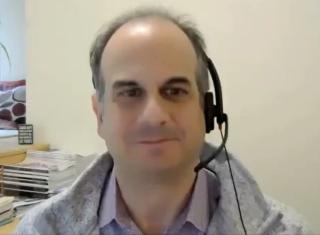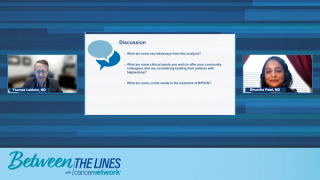
Hematologic Oncology
Latest News
Latest Videos

More News

Expert Perspectives on Fixed Duration Therapy with Venetoclax + Obinutuzumab
A panel of experts discuss the role of fixed duration therapy with venetoclax and obinutuzumab, outlining their general approach for patient selection.

Navigating 1L Treatment Selection with BTKis in CLL
Expert faculty discuss consideration factors in guiding frontline treatment selection with BTKis in CLL.

Updates on BTKi Monotherapy for CLL in the Frontline Setting
A panel of oncology experts explore recent updates from SEQUOIA and ELEVATE-RR, discussing the potential impact of these findings on the clinical practice setting.

The Role of BTKi + Obinutuzumab for 1L Treatment of CLL
A panel of oncology experts discuss the role of 1L combination therapy using obinutuzumab plus a BTKi, highlighting key consideration factors for patient selection.

Treatment with iopofosine I 131 appears to be well tolerated among patients with relapsed/refractory Waldenström macroglobulinemia.

Joshua Richter, MD, of Mount Sinai, and other hematologic cancer experts join CancerNetwork following the 2023 ASH Annual Meeting & Exposition to discuss data from the conference that require the most follow-up.
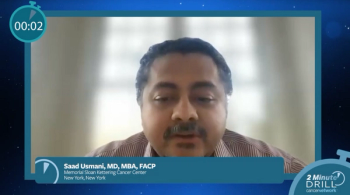
2-Min Drill: ASH 2023 Data in Multiple Myeloma Slated for FDA Approval
Joshua Richter, MD, of Mount Sinai, and other hematologic cancer experts join CancerNetwork following the 2023 ASH Annual Meeting & Exposition to discuss data from the conference that are most likely to lead to an FDA approval.

Outcomes of Allogeneic Hematopoietic Cell Transplantation After Bispecific Antibodies in non-Hodgkin Lymphomas
Overall, the findings highlight the potential of bispecific antibodies as salvage therapy post anti-CD19 CAR T cell treatment and challenges associated with allogeneic hematopoietic cell transplantation consolidation after bispecific antibodies therapy in patients with relapsed/refractory B-cell lymphomas .

Julie M. Vose, MD, MBA, looks back at 2023 on accomplishments and setbacks surrounding the heamtology/oncology space.

Measures should be taken to encourage more community oncologists to adopt minimal residual disease testing in patients with lymphoid malignancies, according to Georges Azzi, MD, of Holy Cross Health.

Evolving Front-line Treatment Options for CLL
In this Cancer Network Around the Practice program, Mazie Tsang, MD offers an overview of the current landscape surrounding frontline therapy in CLL.

Data from a phase 1 study support further analysis of BGB-16673 across several B-cell malignancies, according to the study investigators.

Treatment with NX-2127 leads to clinically meaningful activity in heavily pretreated chronic lymphocytic leukemia, according to results from the phase 1 NX-2127-001 trial.

Investigators of a phase 1 trial identify no safety signals with Orca-Q in the haploidentical stem cell transplantation setting.

Treatment with zanubrutinib may be a viable option for patients with B-cell malignancies who are intolerant to acalabrutinib, says Mazyar Shadman, MD.
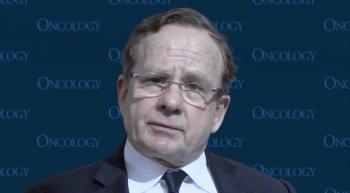
Treatment with CAR T cells may allow patients with hematologic malignancies to recover more quickly compared with a transplant, says Andre Goy, MD.
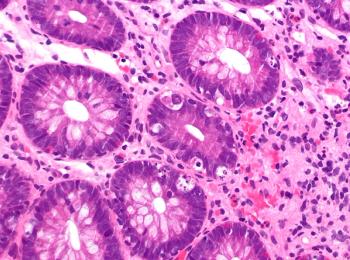
Treatment with ruxolitinib improves the probability of failure-free survival compared with best available treatment among those with chronic graft-versus-host-disease in the phase 3 REACH3 study.

Data from the phase 3 APPLY-PNH trial show comprehensive control of intravascular and extravascular hemolysis with iptacopan in patients with paroxysmal nocturnal hemoglobinuria and persistent anemia.
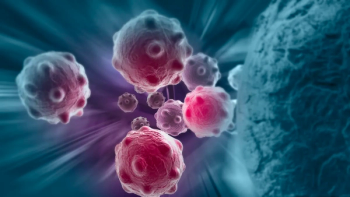
Phase 2 results showed that the investigational monoclonal antibody axatilimab elicited encouraging clinical activity and tolerability across dose levels in patients with recurrent or refractory chronic graft-vs-host disease.
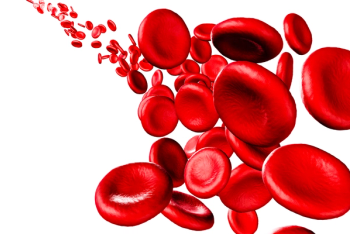
Retrospective, real-world results showed that oral decitabine and cedazuridine and standard parenteral hypomethylating agents demonstrated similar levels of comorbidities and disease burden in patients with myelodysplastic syndrome.

Older patients with hematological malignancies who received Orca-T therapy plus myeloablative chemotherapy have similar relapse-free survival rates compared with younger patients.

A virtual care platform significantly reduces hospital days for patients who are receiving CAR T-cell therapy, says Tonya Cox, BSN, RN, OCN.

Six BCMA-directed, CD19-directed autologous CAR T-cell therapies are under investigation for the potential risk of T-cell malignancies.

A recent study published in Nucleus discussed the utility of T-cell replete cord blood transplant in patients with high-risk pediatric acute myeloid leukemia and myelodysplastic syndrome.

A recent study published in Nucleus highlighted the impact of graft-vs-host disease prophylaxis on cytomegalovirus reactivation.





